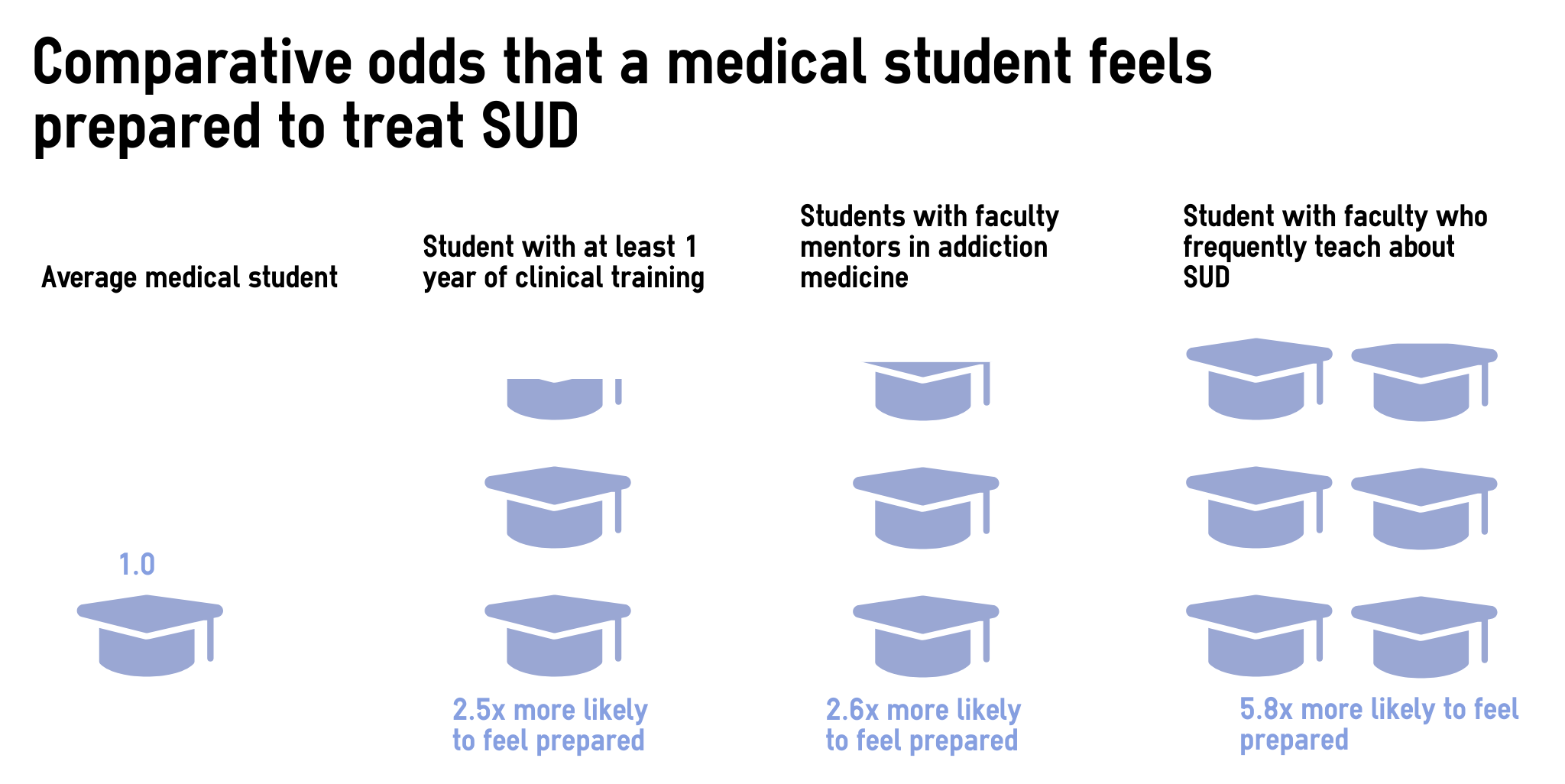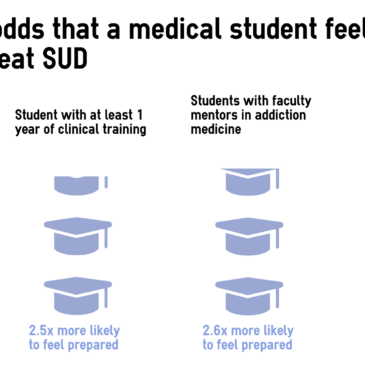In recent years, many communities have faced an urgent public health threat from opioid addiction. Despite this, doctors might not be prepared to provide adequate screening and care for substance use disorders (SUD), potentially because of a lack of training in medical school. This week, STASH reviews a study by Danielle Bäck and colleagues that examines how prepared Massachusetts medical students feel they are to treat patients with SUD.
What was the research question?
Do medical students in Massachusetts feel ready to treat patients with SUD?
What did the researchers do?
The researchers distributed an online survey to students at the four medical schools in Massachusetts. Medical students answered questions about their attitudes towards SUD, their preparedness for treating SUD, and their experiences at medical school learning about addiction. The researchers then used logistic regression to see what characteristics were associated with feeling prepared to treat patients with SUD.
What did they find?
While 91% of medical students strongly endorsed the importance of being able to treat SUD, only 14% strongly agreed that their medical school had sufficiently trained them to treat patients with SUD. Having clinical training, faculty mentors specializing in addiction, or faculty frequently teaching about SUD significantly increased the likelihood that a student felt prepared to treat SUD. Interestingly, over a third of the medical students (37%) strongly agreed that individuals with SUD were more difficult to treat than other patients, and less than two thirds (65%) strongly agreed that SUD is a treatable illness.

Figure. Graduation caps indicate how likely students with particular characteristics are to say they feel prepared to treat SUD. The more graduation caps, the more likely the students are to feel prepared. Click to enlarge.
Why do these findings matter?
Nationwide, over 100 people die from opioid overdose every day. There are effective treatments for opioid addiction. It is vital that our doctors are trained and able to diagnose and treat individuals suffering from opioid use disorder and other SUDs. The results of this survey indicate that there might be a gap in the training that current medical students receive for treating SUD. Furthermore, this study also indicated that a large proportion of medical students held at least some negative attitudes towards patients with SUD. Previous studies have shown that healthcare providers who have negative attitudes towards patients with SUD provide worse care to these people.
Every study has limitations. What are the limitations in this study?
This study was conducted specifically with students attending medical schools in Massachusetts. Therefore, the findings might not apply to medical students in other states. Additionally, the study did not examine objective measures of skill in treating SUD among the medical students – students may have over- or underestimated their readiness to treat individuals with SUD.
For more information:
The Massachusetts Substance Use Helpline provides information and resources about addiction. More self-help materials are available on the BASIS Addiction Resources page.
— Rhiannon Chou Wiley
What do you think? Please use the comment link below to provide feedback on this article.




